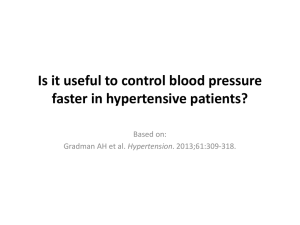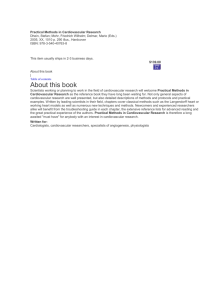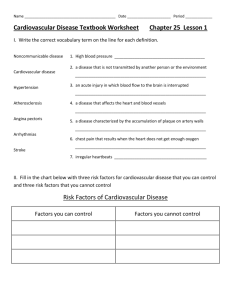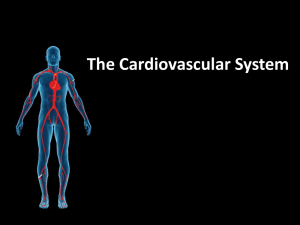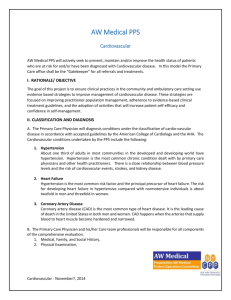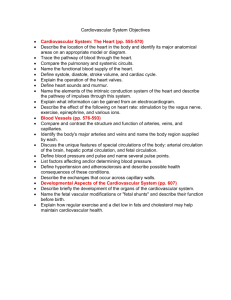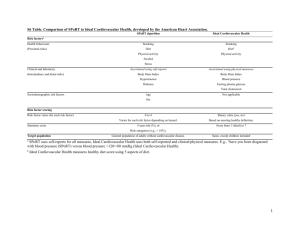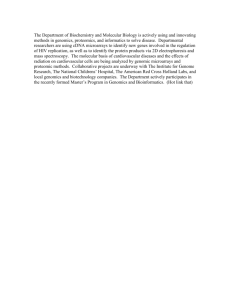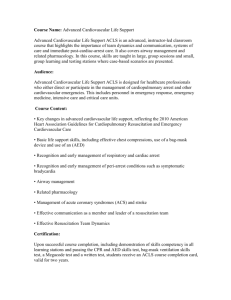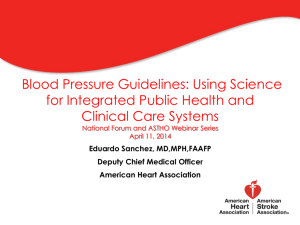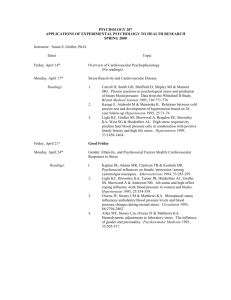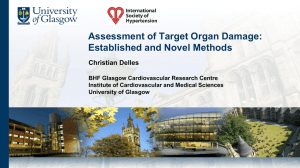npr1 gene provides the protective mechanisms
advertisement
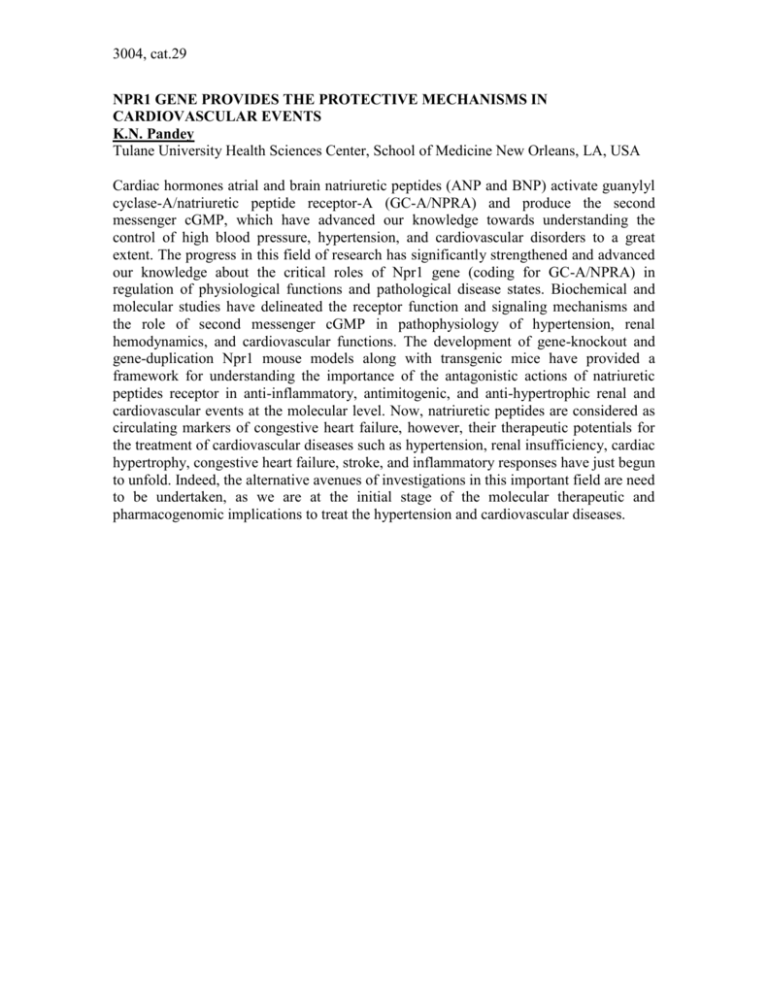
3004, cat.29 NPR1 GENE PROVIDES THE PROTECTIVE MECHANISMS IN CARDIOVASCULAR EVENTS K.N. Pandey Tulane University Health Sciences Center, School of Medicine New Orleans, LA, USA Cardiac hormones atrial and brain natriuretic peptides (ANP and BNP) activate guanylyl cyclase-A/natriuretic peptide receptor-A (GC-A/NPRA) and produce the second messenger cGMP, which have advanced our knowledge towards understanding the control of high blood pressure, hypertension, and cardiovascular disorders to a great extent. The progress in this field of research has significantly strengthened and advanced our knowledge about the critical roles of Npr1 gene (coding for GC-A/NPRA) in regulation of physiological functions and pathological disease states. Biochemical and molecular studies have delineated the receptor function and signaling mechanisms and the role of second messenger cGMP in pathophysiology of hypertension, renal hemodynamics, and cardiovascular functions. The development of gene-knockout and gene-duplication Npr1 mouse models along with transgenic mice have provided a framework for understanding the importance of the antagonistic actions of natriuretic peptides receptor in anti-inflammatory, antimitogenic, and anti-hypertrophic renal and cardiovascular events at the molecular level. Now, natriuretic peptides are considered as circulating markers of congestive heart failure, however, their therapeutic potentials for the treatment of cardiovascular diseases such as hypertension, renal insufficiency, cardiac hypertrophy, congestive heart failure, stroke, and inflammatory responses have just begun to unfold. Indeed, the alternative avenues of investigations in this important field are need to be undertaken, as we are at the initial stage of the molecular therapeutic and pharmacogenomic implications to treat the hypertension and cardiovascular diseases.
